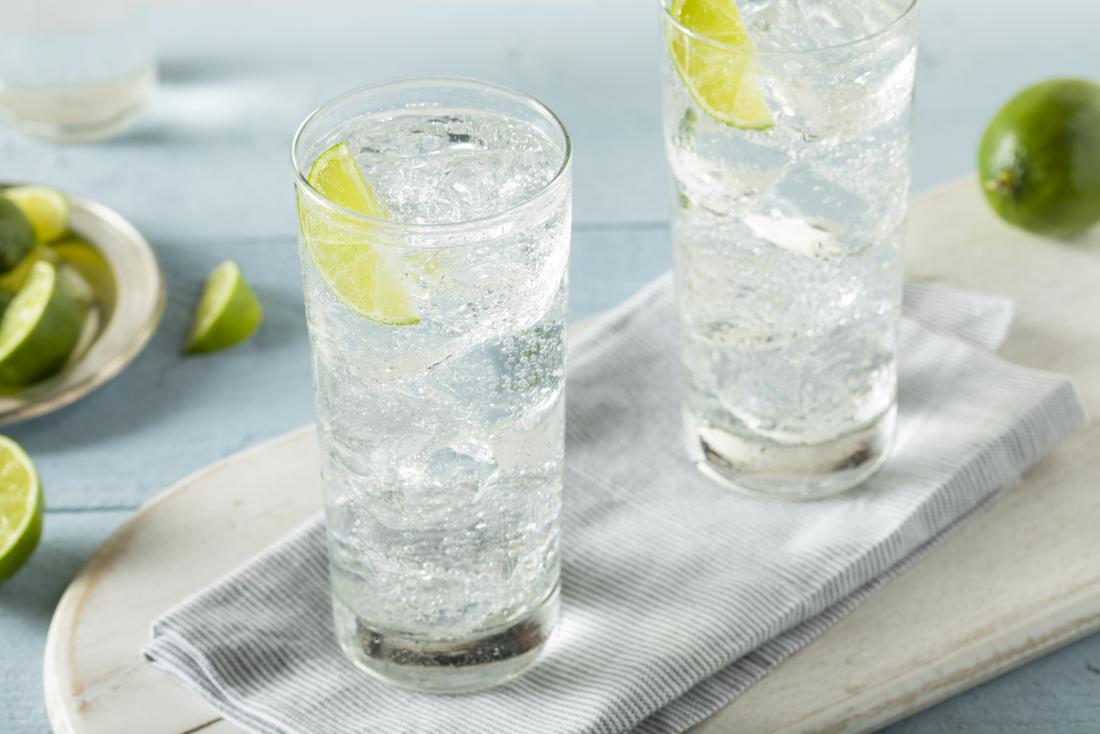Tonic Water's Health Benefits

The Forgotten Elixir: Tonic Water's Rich History
Tonic water has been a stalwart in the world of mixology for centuries, but its origins stretch far beyond the cocktail realm. Originally created as a medicinal drink to combat malaria, tonic water's history is a fascinating tale of innovation and adaptation.
From Ancient Roots to Modern Times
Quinine, the key ingredient in tonic water, was sourced from the cinchona tree, native to the Andean region of South America. The indigenous people of the region had long revered the tree for its medicinal properties, using it to treat fever and malaria. In the 17th century, Spanish colonizers discovered the cinchona tree's benefits and began exporting its bark to Europe.
A Refreshing Remedy
In the early 19th century, British colonizers in India, where malaria was rampant, added quinine to carbonated water to create a refreshing and medicinal drink. This was the birth of tonic water as we know it today. The quinine content helped to prevent malaria, while the carbonation made the drink more palatable.
A Legacy Revived
Today, tonic water is experiencing a resurgence in popularity, with many craft producers experimenting with new flavors and ingredients. However, its health benefits remain a key part of its appeal. Quinine has been shown to have anti-inflammatory properties, and tonic water is also a good source of vitamin B and minerals like potassium and magnesium.
The Quinine Revival: Modern Health Benefits
Recent years have witnessed a resurgence of interest in quinine, a naturally occurring compound found in tonic water. While its historical use as an anti-malarial treatment is well-documented, modern research has unveiled a plethora of additional health benefits associated with quinine consumption.
Anti-Inflammatory and Antioxidant Properties
Studies have identified quinine as a potent anti-inflammatory agent, capable of reducing swelling and pain in the body. Furthermore, its antioxidant properties help protect cells from damage caused by free radicals, potentially mitigating the risk of chronic diseases like cancer and heart disease.
Potential Relief from Leg Cramps and Digestive Issues
Tonic water, which typically contains quinine, may offer relief from leg cramps, a common affliction affecting millions worldwide. Additionally, quinine has been shown to improve digestion, alleviating symptoms of irritable bowel syndrome (IBS) and other gastrointestinal disorders.
Arthritis Symptom Alleviation
Research suggests that quinine may also play a role in reducing the symptoms of arthritis, a debilitating condition characterized by joint pain and inflammation. By incorporating tonic water into their diet, individuals may experience a decrease in arthritic pain and improved mobility.
As the quinine revival continues to gain momentum, it is essential to acknowledge the potential risks associated with excessive consumption. Moderation is key, and individuals should consult with healthcare professionals before making any significant changes to their diet.
Beyond the Gin and Tonic: Exploring Tonic Water's Versatility
Tonic water has long been associated with the classic gin and tonic cocktail, but its uses extend far beyond the bar. In recent years, tonic water has emerged as a standalone drink with a wide range of flavor profiles and options.
A World of Flavors
From the traditional Indian tonic water, made with quinine and botanicals, to modern variations infused with fruits, herbs, and spices, the choices are vast. Some popular flavors include:
- Lemon and lime
- Grapefruit and elderflower
- Cucumber and mint
- Ginger and lemongrass
A Range of Options for Every Taste and Diet
The market now offers a variety of tonic water options to cater to different tastes and dietary requirements. These include:
- Diet and sugar-free tonic water, sweetened with natural alternatives like stevia or erythritol
- Low-calorie tonic water, perfect for health-conscious consumers
- Craft tonic water, made with premium ingredients and unique flavor combinations
- Indian tonic water, with a stronger quinine flavor and a nod to its historical roots
With its versatility and range of options, tonic water is no longer just a mixer for cocktails, but a drink that can be enjoyed on its own or paired with a variety of spirits and foods.
The Best Tonic Waters for Health-Conscious Consumers
As the resurgence of tonic water's health benefits continues to gain momentum, health-conscious consumers are seeking out high-quality options that not only tantalize their taste buds but also provide a boost to their well-being. In this section, we'll delve into the best tonic waters available in the market, highlighting their unique features and advantages.
Established Brands Leading the Way
Fever-Tree and Schweppes are two prominent brands that have been at the forefront of the tonic water revival. Both offer high-quality products that contain real quinine, a natural ingredient extracted from the bark of the cinchona tree. Quinine has been used for centuries to treat various health ailments, including malaria and arthritis.
Fever-Tree, in particular, has gained a reputation for its premium tonic water, carefully crafted with natural ingredients and a touch of sweetness. Schweppes, on the other hand, has been a trusted name in the industry for over 200 years, offering a range of tonic water products that cater to different tastes and preferences.
Emerging Brands Offering Unique Options
Beyond the established brands, there are several emerging players that are making waves in the tonic water market. Q Mixers and Fentimans are two notable examples, offering unique flavor options and natural ingredients that appeal to health-conscious consumers.
Q Mixers, for instance, provides a range of tonic water flavors, including a grapefruit and elderflower variant that adds a delightful twist to the classic gin and tonic. Fentimans, on the other hand, uses a combination of natural botanicals and a touch of ginger to create a distinctive tonic water experience.
What sets these emerging brands apart is their commitment to using natural ingredients and avoiding artificial additives, making them an attractive option for consumers seeking a healthier alternative.
Conclusion: Tonic Water's Renaissance
Tonic water is experiencing a resurgence in popularity, driven by its potential health benefits and versatility. This revival is not merely a fleeting trend, but a testament to the evolving preferences of health-conscious consumers. As individuals seek out beverages that not only tantalize their taste buds but also provide a nutritional boost, tonic water is poised to become a staple in many households.
The renewed interest in tonic water can be attributed to its unique blend of ingredients, including quinine, citrus, and botanicals. These components have been shown to possess various health benefits, such as reducing inflammation, improving digestion, and even exhibiting anti-malarial properties. Furthermore, tonic water's versatility makes it an excellent base for craft cocktails or a refreshing drink on its own, catering to diverse tastes and preferences.
As consumers become more health-conscious, tonic water is well-positioned to capitalize on this shift. With its rich history, potential health benefits, and adaptability, tonic water is no longer just a relic of the past but a drink of the present and future. Embracing this renaissance, manufacturers and mixologists are innovating and experimenting with new recipes and flavors, ensuring that tonic water's resurgence is here to stay.















Comments ()